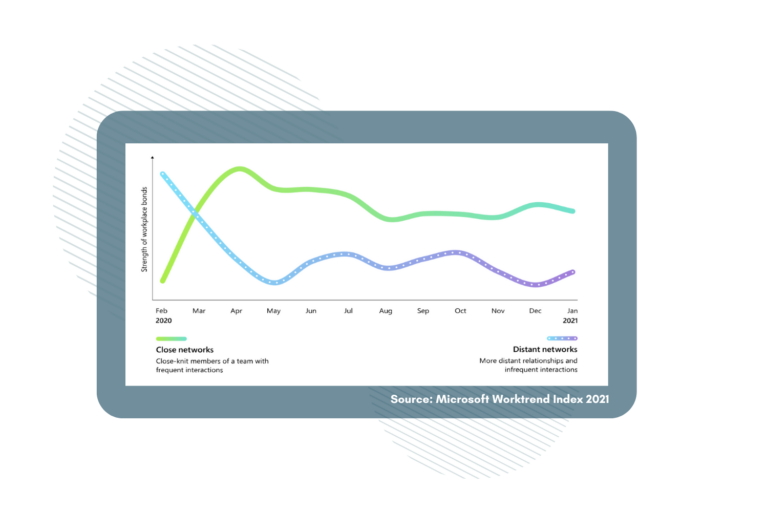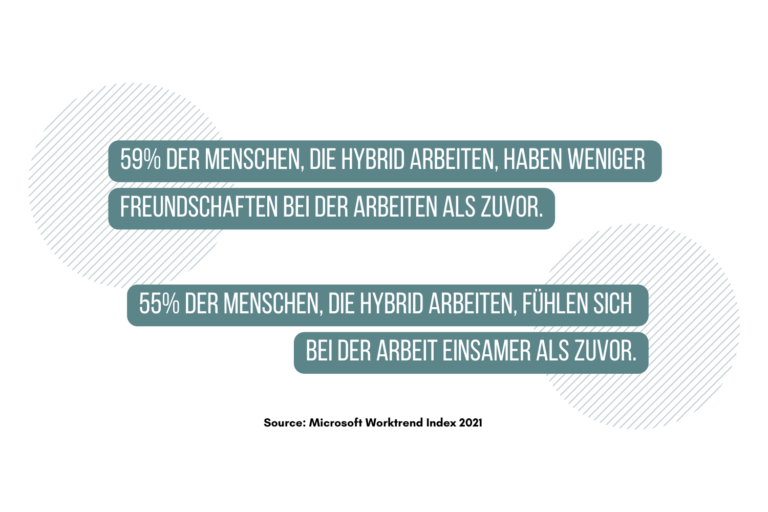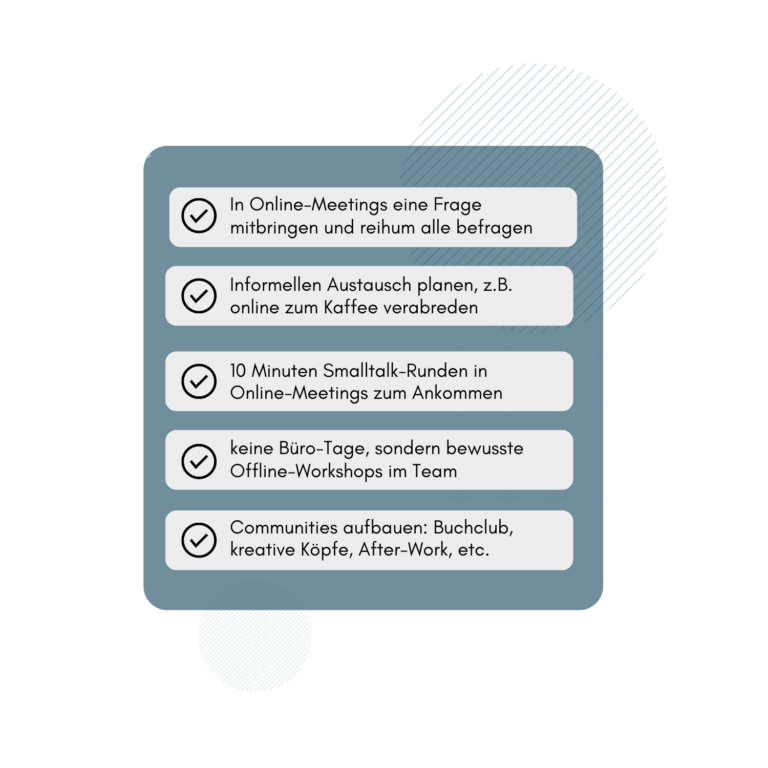
In a classic office world, as it existed over the past decades, there were many opportunities to build relationships and grow together as a team. Whether it was a quick chat at the coffee machine or small talk after the weekly meeting - there was always room for exchange and contacts. But what is different in a digital working world? How can we maintain contacts digitally and strengthen hybrid teams?
Personal contacts strengthen our network
In our everyday working life, there are situations that are so self-evident that we no longer even think about them or question them. We come into a meeting room, greet the other participants and find a seat. Being in the same environment at the same time and physically seeing the others in front of us already offers numerous starting points for small talk. From the canteen meal of the day to the holiday tan of a colleague. The topics can be banal, but brief, positive moments of contact at work strengthen our relationship with the employer. Chance encounters with colleagues from other departments or with other functions make us more creative and innovative.
Remote work: personal exchange is missing
In an experiment, salespeople with many chance encounters in their company were able to increase their turnover by 10%. So the coffee machine strategy works! In the past, the short chat was taken for granted, today it is enormously lacking for short, personal contact moments.
Online, this social and often very natural interaction is much more difficult to control. Two extremes are particularly negative: either there is no semi-private exchange at all or it stretches on too long, so that some participants are left behind. This can often be controlled well non-verbally in a shared space. But not in an online environment.

What is different in a hybrid work environment?
Irregular, fleeting moments of contact and relationships have been greatly diminished by the pandemic and thus by home office. Yet they are so important for our well-being and sense of belonging. The question can be legitimately asked here: Does remote work make us lonely?

Of course, there is no general answer to this question because, as always, it is a question of type and life circumstances. The answer of an introvert who lives in a one-room flat and doesn't like to communicate digitally is obvious. The extrovert who loves to talk on the phone and doesn't mind lunch with a casual acquaintance thinks differently. Maybe he even has a family with small children at home - lonely? Nope! In a digital working world, it is more important than ever to take all employees with us, to respond to individual preferences in communication and personalities. In this way, a sense of togetherness can be consciously created. But how do you do that concretely from screen to screen?
Maintaining digital contacts: How do we do it?
Let's be honest: Loneliness or the feeling of not being able to motivate oneself alone is something everyone can relate to after the last few years. There is no denying that these are negative effects of remote work. But how can we work together without being physically together? How can we maintain digital contacts?
Best practices here are the usual, everyday collaboration tools. The chat function can be left open during working hours so that a short exchange is possible at any time. Of course, everyone has to weigh up the need for contact or rest. An online session lasting several hours is also possible. With camera, microphone and a fully dialled-in team. A constant exchange does not have to be planned, but an office-like situation can be created. Short moments of contact are thus easily possible.


With Hybrid Work, it's even more true: Never lunch alone!
Of course, this also applies to remote work. Why not arrange an online lunch or actually physically meet with someone when distance allows? It's not a plan that works every day. But still, with all efficiency-driven thoughts, one should not completely miss this opportunity.
Maintain extensive network
Another challenge is to maintain wide-ranging working relationships. In other words, keeping in touch with colleagues who are not part of our closest team. People you normally bump into in the corridor, in the canteen or at an industry event. The important thing here is to consciously keep in touch. For example, at the time when a contact moment would have arisen. For the planning geniuses, it is also possible to have a short but fixed time window during the week in which messages are sent or calls are made. A concrete occasion simplifies the plan: Congratulations on a new position, an interesting professional article or the reason why you are thinking of the person at that very moment.
